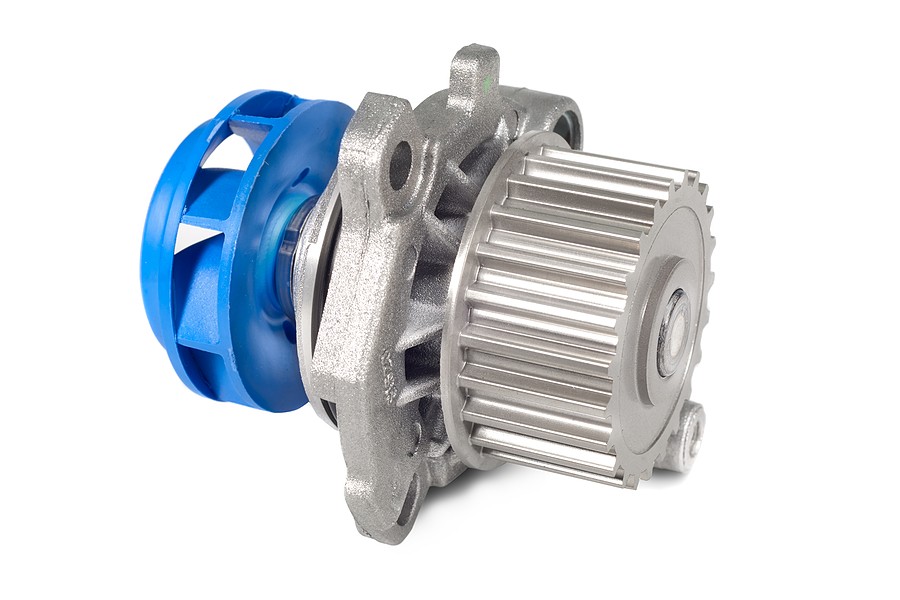Your vehicle's water pump contributes to the cooling of your engine. It works by pumping coolant through your engine block, transferring heat from the inner cylinders out into the engine's radiator, where it is cooled and recirculated back into the system. Unfortunately, a bad water pump can cause several problems in an automobile.
It's no secret that a bad water pump can lead to some serious engine trouble. In this article, we're going to take a closer look at what can happen when your water pump goes bad and how to prevent it from happening in the first place. So, keep reading for more information.
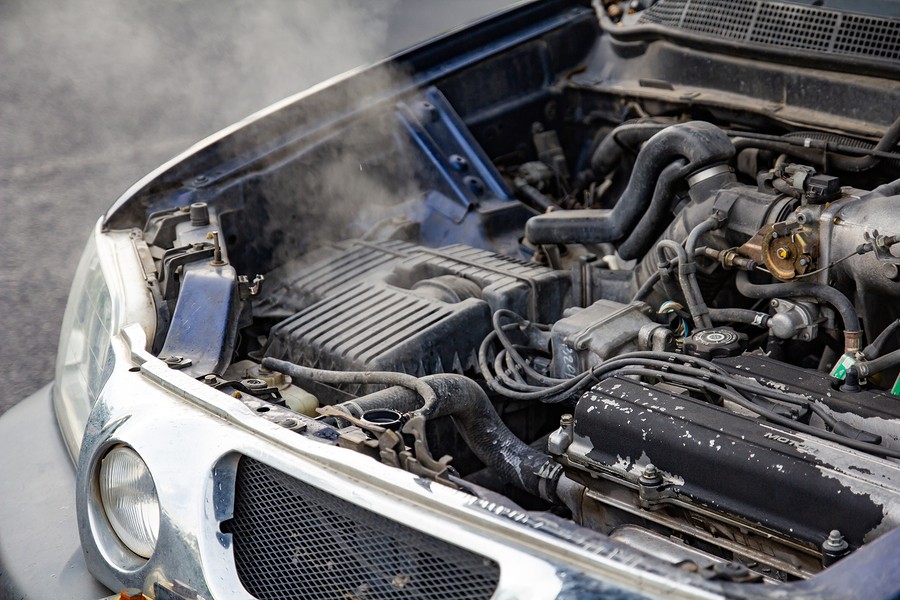
What is a water pump, and what does it do in your vehicle?
A water pump is a mechanical device that rotates at engine speed. It draws coolant from the radiator routes it through your engine block, bringing the coolant to a high temperature before sending it back into the radiator. The water pump works with other components to maintain an optimal operating temperature for your vehicle.
What Are The Consequences Of A Bad Water Pump?
If you have problems with your water pump, you are likely to see little warning signs before it completely fails. Some of the most common symptoms include overheating issues, noise coming from the engine area when the vehicle is running, leaking coolant, or an excessive amount of steam in your exhaust.
It's never a good situation when your vehicle's water pump is not in good condition. Here are the ten potential negative consequences of a bad water pump:
#1 A bad water pump can cause your engine to overheat
The first thing you should know about a bad water pump is that it can cause your engine to overheat. WCoolantis not being distributed through the engine block. When the water pump begins to malfunction, In turn, your vehicle's temperature will increase, and your engine may begin to misfire.
#2 A bad water pump can lead to extra-long engine repair timeframes.
A water pump that fails can result in extensive damage to your engine. When the water pump goes bad, it often causes other components in the system to fail. If the water pump seizes up due to a lack of lubrication, you could have major engine repair work on your hands.
#3 A bad water pump may cause coolant leaks or low coolant levels
When your vehicle's water pump starts to go bad, coolant will likely begin leaking from somewhere within the cooling system. As soon as you notice any drips or puddles under your vehicle when parked, have it inspected immediately by a professional mechanic. Low coolant levels are dangerous for your engine and can sometimes cause permanent damage.
#4 A bad water pump may cause your vehicle to overheat in the middle of driving.
This is another of the most common consequences of a bad water pump. If you are stuck in traffic on a hot day, your engine temperature will rise rapidly. The last thing you need is for your engine to fail while you're stuck in heavy gridlock or, worse yet, on the highway! Keep an eye out for signs based on the first three negative consequences above if this happens to you.

#5 Your vehicle's fuel mileage may suffer
When your coolant system begins to malfunction, it causes other components to wear out much earlier than expected. As such, there is increased drag upon your engine. The result is that it takes more fuel to power your vehicle.
#6 A bad water pump can cause oil leaks
If the seal around the outside of your vehicle's water pump starts to go bad, coolant will leak into places where it does not belong. This includes the engine's cylinders and crankcase, likely damaging seals within both components. In addition, oil mixing with coolant can lead to serious engine problems, so keep an eye out for this one too!
#7 A faulty water pump puts added strain on other components in your cooling system
When parts of your cooling system are working harder than they should be due to a defective water pump, you are looking at increased wear and tear on other components as well. This includes the radiator, hoses, and thermostat, designed to work in tandem with your water pump. If you notice issues related to these components, have them inspected by a professional mechanic as soon as possible.
#8 A bad water pump can lead to an increase in vehicle noise levels
A bad water pump is often accompanied by many types of strange noises coming from your engine bay. The most common one is usually a squealing noise when the engine is running or when you first turn on the ignition. However, you might also hear unusual grinding or loud knocking noises that usually indicate something out of place internally inside your vehicle's engine.
#9 A faulty water pump may cause coolant leaks onto other engine components
When your vehicle's water pump fails, coolant will likely leak onto engine parts that are exposed. This can include belts and pulleys, which may become damaged by the heat generated by the failed water pump. If you notice any visible damage to these types of parts, be sure to have your mechanic inspect them as soon as possible.
#10 A bad water pump can result in overheated or warped head gaskets
If all other internal repairs fail to fix your overheating problem, then overheated or warped cylinder head gaskets may be at fault. Overheated head gaskets need replacement because they cannot be repaired effectively without causing further damage to critical engine components. Warped head gaskets are even more serious because they will not seal properly and must be replaced as soon as possible.
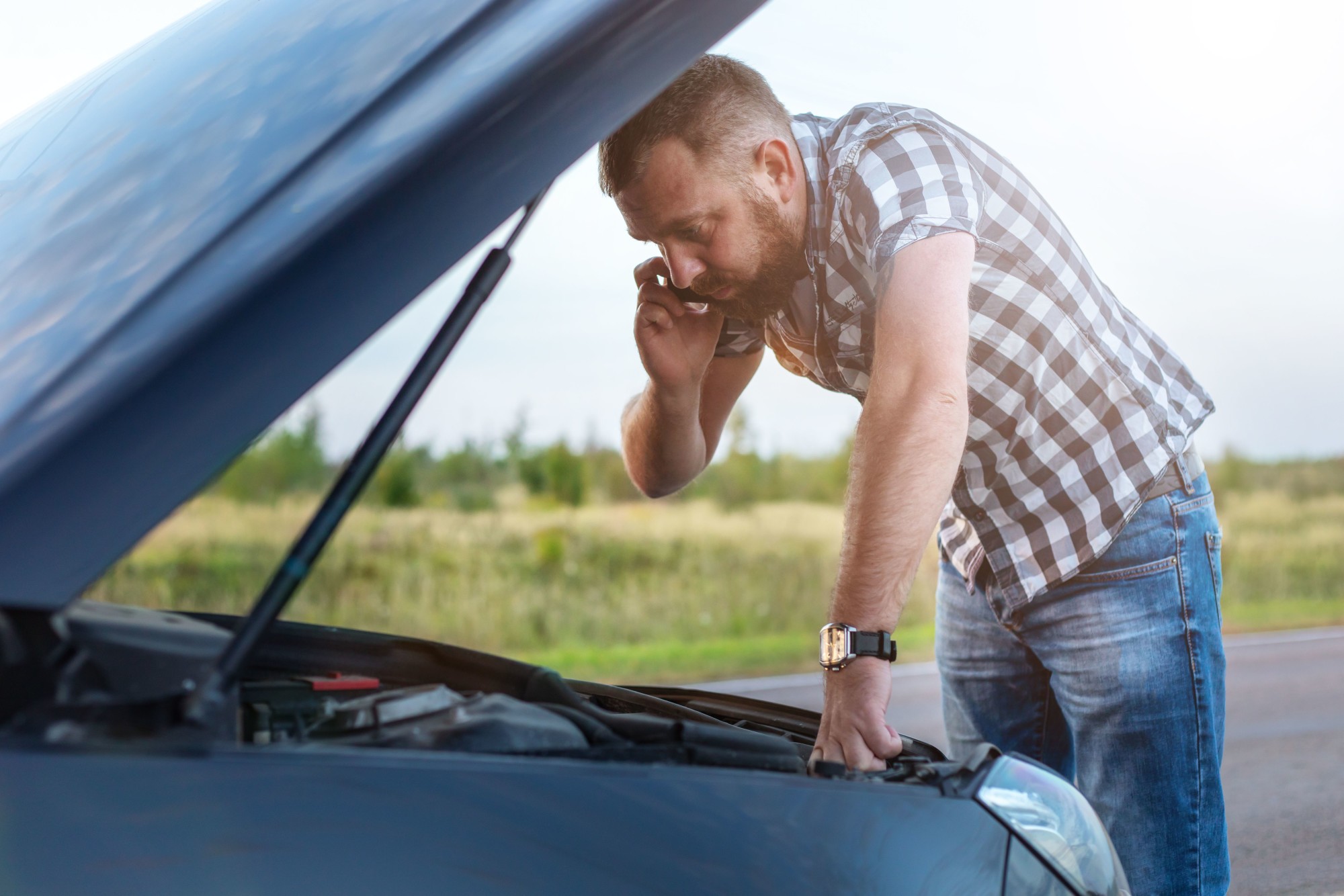
Preventing problems caused by a bad water pump!
The best way to avoid overheating and other serious problems are to regularly maintain your vehicle's cooling system. At least once a year, have your mechanic inspect all of the components related to your vehicle's cooling system.
More specifically, here are ten tips to help you prevent premature water pump damages in your vehicle:
- First, check your water pump regularly for leaks or exposed damage.
- Prevent overheating by keeping an eye out for signs of trouble, especially after hard engine work has been performed on your vehicle.
- Do not ignore the warning signs that mean you need to get your cooling system serviced! Even if you notice an occasional puddle under your vehicle, get it checked out right away!
- Keep your cooling system filled to the proper levels at all times.
- Use only water, antifreeze, or coolants specifically designed for use in your make/model of vehicle. Different vehicles can have different chemistry mixes in their incompatible radiator fluids. Consult your owner's manual for more information on this topic.
- Inspect all hoses and belts regularly for signs of wear or cracks that could lead to failure during operation. Also, don't forget to check the condition of serpentine belts because they are not as easy to see compared to other types commonly found in some vehicles.
- Consider using a factory-approved coolant enhancer if you live in particularly hot or cold climates.
- Use a high-quality radiator flush on your cooling system once every two years to help remove impurities that may contribute to premature wear of internal engine components.
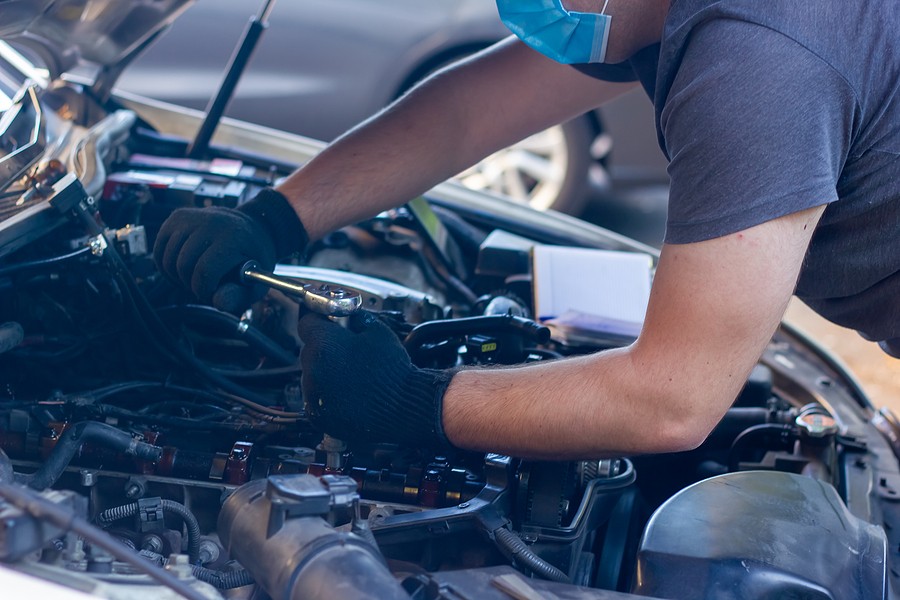
How much does it cost to replace a bad water pump?
The cost to replace a bad water pump in your vehicle varies depending on your vehicle's make, model, and year. Also, it is important to note that not all types of pumps are replaced when they fail. In addition, some newer vehicles have parts designed to be replaced instead of repaired when issues arise.
What are some alternatives for replacing a bad water pump?
If you notice problems with your cooling system, you may need to get multiple components serviced simultaneously. These may include coolant hoses, radiator caps, sensors, and thermostats, among other things. The total price tag associated with these repairs will vary depending on the severity of each problem and how many parts need servicing to restore optimal performance levels.

How to replace a water pump in your car?
As you might notice, the consequences of a bad water pump can be very critical. If you cannot repair the problem with your water pump, maybe it is better to replace it with another one. Here is a step-by-step process for how to replace a water pump:
#1 locate the water pump
Locate your car's water pump by looking at the owner's manual or checking with the service staff of the dealership where you purchase your vehicle. Some cars have their coolant recovery tank on top, while others may be located at a different place under the hood, usually marked with an icon resembling a radiator cap.
#2 remove the radiator cap
Once you have located your car's water pump, the second step is to open the radiator cap and empty all of its contents.
#3 drain out as much as possible from your vehicle's cooling system
No coolant must enter into the oil sump for this process to work without problems.
#4 remove the belt from your car's water pump
To proceed with this step, you need to look at the owner's manual for instructions on removing a specific type of belt associated with cooling system components.
#5 Detach the hoses from your car's water pump
After removing the belt from the water pump, you need to detach all of its hoses.
#6 remove the four bolts that hold your car's water pump in place
After removing all of the hoses and belts from a specific component, use an adjustable wrench to take off the four bolts that hold it in place. Remember to disconnect the hoses that connect the water pump to other components before doing this.
#7 detach the old water pump from your vehicle's cooling system
Now, you can separate the bad water pump from your car's radiator and pull it out of its place.
#8 Install a new water pump now
Using all of the tools you removed from your car's water pump, you can now install a replacement component and attach it to the remaining components that were attached to the original one you pulled out.
#9 add coolant into your vehicle's cooling system
After installing a new water pump, you need to add coolant into your engine and allow it to sit for 30 minutes. Then, check for leaks and test your car's components to see if they are working as expected. If not, you may need to take your car back into a shop so that a mechanic can run additional tests.
#10 clean up the tools you used to replace your water pump
You can use a towel or disposable cloths for this step. Remove all of the excess coolants that seeped into the engine bay during the installation process, then wipe down all of your car's components to make it easier to work on them in the future if necessary.
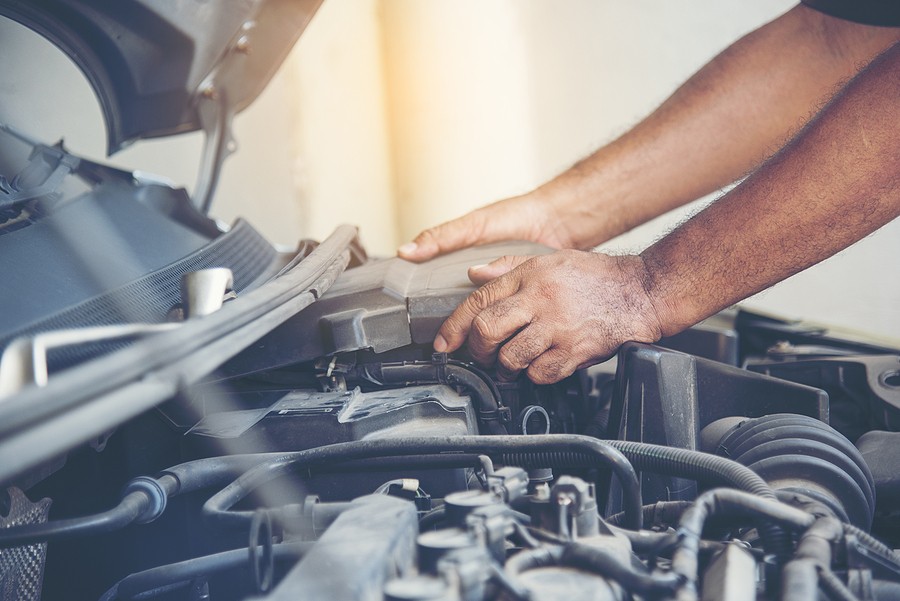
Should I fix the water pump or sell my car?
If you notice any leaks, make sure to repair them as soon as possible. Leaks can not only cause damage to the engine of your car, but they will also make it more difficult for you to drive around without problems. Also, pay attention to all of the warning signs that are associated with your vehicle's water pumping system so that you can avoid making costly repairs down the road.
There are some factors to consider before spending money fixing the water pump:
#1 how old is your car?
If your car is over 100,000 miles, it might be worth the investment to replace your water pump to avoid other, more expensive repairs later.
#2 does your water pump have any leaks?
If your car's water pump has a lot of leaks or is leaking from multiple locations, it might be worth the investment to replace it to prevent other components from being damaged down the line. However, if this is not possible, you may need to invest in a high-quality water pump repair kit.
#3 do you want to get the most value for your car?
If you can get a high price for your vehicle, it might be worth the investment to spend money on replacing the water pump and other parts associated with your engine. If not, you may have trouble finding someone willing to purchase your car without an engine in working condition.
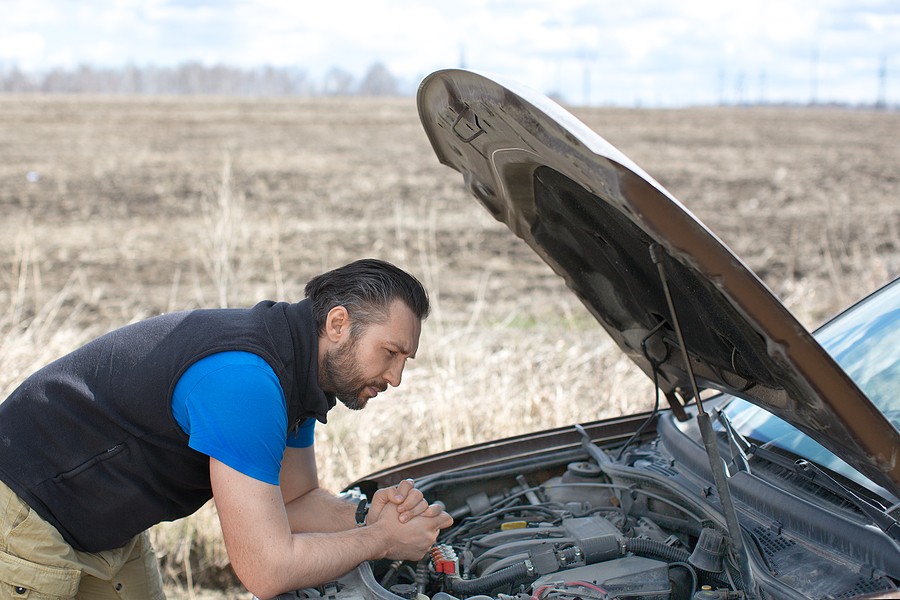
Conclusion
The consequences of a bad water pump can be serious. This article has provided you with all the information needed to understand these consequences, how they occur and how best to prevent them. The key takeaway is that it's important for drivers who notice signs of trouble related to their vehicle cooling system should get it serviced as soon as possible before any further damage occurs.

